There needs to be serious DEMAND FOR JUSTICE, ON BEHALF OF THE CONGO,
NOT JUST DEMANDING JUSTICE TO THE MATERIALIST EXPLOITERS
BUT TO THOSE PREACHING 'GOD' WHO ARE EXPLOITING THE MISERY...TELLING KIDS THEY ARE DEMON POSSESSED THEREFORE THAT IS WHY THEIR KIDS ARE DYING AND WOMEN RAPED AND VAGINAS SHOT WITH GUNS,
IN THE NAME OF GOD
NOT THE MUSLIM GOD
THE CHRISTIAN GOD
ENOUGH
I SAY
ENOUGH
IF THIS DOESN'T MAKE YOU ANGRY, YOU IN NO WAY IN HELL, KNOW WHO CHRIST IS.
Congo's tragedy: the war the world forgot
In a country the size of Western Europe, a war rages that has lasted eight years and cost four million lives. Rival militias inflict appalling suffering on the civilian population, and what passes for political leadership is powerless to stop it. This is Congo, and the reason for the conflict - control of minerals essential to the electronic gadgetry on which the developed world depends - is what makes our blindness to the horror doubly shaming. Johann Hari reports from the killing fields of central Africa
Friday, 5 May 2006
* Share
o Digg It
o del.icio.us
o Facebook
o Reddit
* Print Article
* Email Article
* Text Size
o Normal
o Large
o Extra Large
This is the story of the deadliest war since Adolf Hitler's armies marched across Europe - a war that has not ended. But is also the story of a trail of blood that leads directly to you: to your remote control, to your mobile phone, to your laptop and to your diamond necklace. In the TV series Lost, a group of plane crash survivors believe they are stranded alone on a desert island, until one day they discover a dense metal cable leading out into the ocean and the world beyond. The Democratic Republic of Congo is full of those cables, mysterious connections that show how a seemingly isolated tribal war is in reality something very different.
This war has been dismissed as an internal African implosion. In reality it is a battle for coltan, diamonds, cassiterite and gold, destined for sale in London, New York and Paris. It is a battle for the metals that make our technological society vibrate and ring and bling, and it has already claimed four million lives in five years and broken a population the size of Britain's. No, this is not only a story about them. This - the tale of a short journey into the long Congolese war we in the West have fostered, fuelled and funded - is a story about you.
I Rapes Within Rapes
It starts with a ward full of women who have been gang-raped and then shot in the vagina. I am standing in a makeshift ward in the Panzi hospital in Bukavu, the only hospital that is trying to deal with the bushfire of sexual violence in eastern Congo. Most have wrapped themselves deep in their blankets so I can only see their eyes staring blankly at me. Dr Denis Mukwege is speaking. "Around 10 per cent of the gang-rape victims have had this happen to them," he says softly, his big hands tucked into his white coat. "We are trying to reconstruct their vaginas, their anuses, their intestines. It is a long process."
We walk out into the courtyard and he begins to explain - in the national language, French - the secret history of this hospital. "We started with a catastrophe we just couldn't understand," he says softly. One day early in the war, the Unicef medical van he was using was looted. Coincidentally, a few days later, a woman was carried here on her grandmother's back after an eight-hour trek. "I had never seen anything like it. She had been gang-raped and then her legs had been shot to pieces. I operated on her on a table with no equipment, no medicine."
She was only the first. "We suddenly had so many women coming in with post-rape lesions and injuries I could never have imagined. Our minds just couldn't take in what these women had suffered." The competing armies had discovered that rape was an efficient weapon in this war. Even in this small province, South Kivu, the UN estimates that 45,000 women were raped last year alone. "It destroys the morale of the men to rape their women. Crippling their women cripples their society," he explains, shaking his head gently. There were so many militias around that Dr Mukwege had to keep his treatments secret - the women were terrified of being kidnapped again and killed. He became an Oskar Schindler of the Congolese mass rapes.
As we walk down to watch 200 rape victims being taught to sew under a large, dark bridge, he tells me what they can expect now. "When the rapes begin, the husbands and fathers often just scarper and never come back. The women never hear anything from them again. Other times, the men blame the women and shun them. It's very hard for us to persuade the women to leave the hospital, because where are they going to go?"
He introduces me to Aileen, who is 18 but looks much younger. She holds her hands tightly in her lap. Her story is stark, the details sparse. Her village was raided by a militia on 10 October, and "they beheaded people in the central square". Her voice is high-pitched; she is almost squeaking. She was seized and taken back out into the forest by the militia where they kept her for six months. "I was raped every night. The first night my body really ached and hurt because I was a virgin," she says. She would be passed on from one man to the next. It is only as she speaks that I notice the large protruding bump sagging into her lap. The baby is going to be born next month. She says she has spoken to her family, but Dr Mukwege tells me later this is a fantasy. "What," she asks me with wide eyes as we leave, "do you think I should do? Where can I go?"
It is coldly appropriate to start here. The rape of Aileen and the rape of the thousands of women who stagger into the Panzi hospital are, I soon discover, merely part of a larger rape - the rape of Congo.
II The Last of the Belgian Colonialists
Bukavu is a cratered, shattered shack-city in eastern Congo that lies on the edge of Lake Kivu. In the street markets, people trade scraps of food for Congolese notes worth a few pence. In the houses, they stagger along without water or electricity. Wandering through this cacophony, I find a lone white woman, a lingering remnant of the origins of this war. She can reveal how all this began.
As we sit over lunch, Tina Van Malderen says, skimming the menu: "I don't drink water - only wine." Her hair is greying but her smile is warm. "I came to Bukavu as a little girl in 1951 when my father came to work for the Belgian administration," she explains. "It was paradise. There were only Europeans then. No Africans. Black people lived in the surrounding areas. It wasn't like South Africa, they weren't forced. They didn't want to live with us. They came into the town to work. They had their own market." She speaks of the days of the Belgian empire with a soft-focus sepia longing. "I have four sisters, and we would swim in the lake all day. It was like a non-stop holiday."
Her family owned a chain of shops, and the only castle in Congo. She is incredulous when I ask if there was any cruelty towards black people back then. "Absolutely not. We loved our blacks. When they had children, we gave them gifts." Perhaps sensing my scepticism, she adds: "Maybe on the plantations they were a little bit rude to them." The Belgians unified Congo in the first great holocaust of the 20th century, a programme of slavery and tyranny that killed 13 million people. King Leopold II - bragging about his humanitarian goals, of course - seized Congo and turned it into a slave colony geared to extracting rubber, the coltan and cassiterite of its day. The "natives" who failed to gather enough rubber would have their hands chopped off, with the Belgian administrators receiving and carefully counting hundreds of baskets of hands a day.
This system of forced cultivation continued until the Belgians withdrew in 1960, when Patrice Lumumba became the first and only elected leader of Congo. "He was a stupid man," Tina says swiftly. "On the first day of independence, he said we had beaten and humiliated the blacks. He signed his death warrant by doing that."
She's right - he did. Lumumba claimed to be a democratic socialist who wanted to overcome Congo's ethnic divisions. We will never know if he could have fulfilled this dream, because the CIA decided he was a "mad dog" who had to be put down. Before long, one of its agents was driving around Kinshasa with the elected leader's tortured corpse in the boot, and the CIA's man - Mobutu Sese Seko - was in power and in the money. Tina's family sold their castle to the dictator as he renamed the country Zaire. "People always ask if he paid. Of course he paid!" she laughs. Mobutu became another Leopold, using the state to rob and murder the Congolese people.
Tina's family started to worry in the 1970s when he announced a programme of "Zaireanisation" - a Mugabe-style transfer of the resources of foreigners to his cronies. "My mother arrived at work one day and there was a black man come to take possession of everything, including her car. She had to walk home," Tina says, glugging red wine.
"Everything began to fail after that. The food became disgusting. Even our dog didn't want to eat it." This is Tina's first visit home - she still calls it that - since they fled. "I saw the house we lived in. From outside it still looked nice but when I went inside..." she shakes her head. "The black people cannot live properly. If I had to compare Congo, I must say it hasn't changed at all. They are not naked any more, but they are still savages." Tina's countrymen established the nation-state in the Congo, and they designed it to be a vampire-state. The only change over the decades has been the resource snatched for Western consumption - rubber under the Belgians, diamonds under Mobutu, coltan and cassiterite today. "Cheers," Tina says, downing her wine.
III The War for Games Consoles
If you want to glimpse what all this death has been for, you have cross Lake Kivu and drive for four hours, on pocked and broken roller-coaster roads, until you reach a place called Kalehe. Scarring the lush green hills are what seem to be large red scabs that glisten in the sun. The term for these open wounds in the earth is "artisinal mines", but this dry terminology conjures up images of technical digs with machines and lights and helmets. In reality, they are immense holes in the ground, in which men, women and children - lots of children - pick desperately with makeshift hammers or their bare hands at the red earth, hoping to find some coltan or cassiterite to set on the long conveyor belt to your house, or mine. Coltan is a metal that conducts heat unusually brilliantly. It is contained in your mobile, your lap-top, your son's PlayStation - and 80 per cent of the world's supplies sit beneath the Democratic Republic of Congo.
As I crawl down into the mine - its cool, damp darkness is a strange contrast to the raging Congolese sun - the miners laugh. The idea of a muzungu - a white man - in their mine seems to them impossibly comic. But they soon get back to picking away at a roof that looks like it could collapse at any moment. Ingo Mbale, 51, explains how the West's hunger for coltan is fed. "We were enslaved three years ago," he says. "An RCD captain [from one of the militias] arrived and forced us to mine for them at gunpoint. They gave us no money, it was slave labour. There is nothing left in many of these shafts now, they exhausted them. They killed many people. Our gold and coltan and cassiterite went out to the world via Rwanda."
Watching these men, the shape of Congo's recent history becomes clear. There is an official story about the war in Congo, and then there is the reality, uncovered by a trilogy of bomb-blast reports from the UN Panel of Experts on the DRC. The official story is convoluted and hard to follow, because it does not ultimately make sense. But its first chapter is true enough, and goes something like this. In 1996, a Maoist with an eye for money called Laurent-Désiré Kabila grew tired of simply running his little fiefdom in eastern Zaire, where he peddled ivory and gold with a nice sideline in kidnapping Westerners. Kabila decided to depose Mobutu, the omnipresent and omni-incompetent tyrant, and seize power for himself. He cobbled together a ragtag army of child soldiers known as the Kadogo and, with the support of neighbouring Rwanda and Uganda, the edifice of Mobutuism collapsed even before their tinny, tiny advance. Kabila installed himself as another Leopold-alike, banning political parties and bathing in corruption.
But then in 1998 Kabila asked the Rwandans and Ugandans to withdraw their troops from Congo - so long, and thanks for the armies - and the official story begins to drift away from reality. The Rwandans pulled back for a fortnight, but then mounted a massive invasion of Congo, seizing a third of the country. The public reason for this assault sounds reasonable. After the 1994 genocide in Rwanda - a slaughter that made even Auschwitz look slow-paced - tens of thousands of the Hutu Power machete-wielders fled across the border to Congo and set up long-term bases. How could any country rest with its murderers armed and crazed on its borders? "We must prevent the génocidaires from regrouping," said Paul Kagame, the Rwandan president, with the supportive Ugandan military following in tow.
From his palace in Kinshasa, Kabila appealed to his friends for help resisting this Rwandan-Ugandan attack. Zimbabwe, Namibia and Angola obligingly sent armies marching into Congo to fight back, and Africa's First World War began. The armies and militias marauding across Congo then became rebels without a cause, fighting each other because they were there and because pulling out would be a humiliating concession of defeat. In this version, the war in Congo is a mess, started with the best of intentions - the Rwandans' desire to track down génocidaires - only to spiral out of control. It presents the mass slaughter as a giant cock-up, a cosmic mistake. This is strangely reassuring. It is also a lie.
Once the Congo was drenched in death, the UN commissioned a panel of international statesmen to travel the country and uncover the reasons behind the war. They found that the Rwandan government's story hid a much darker truth. The Rwandans had a clear intention, right from the beginning: to seize Congo's massive mineral wealth, to grab the coltan mine I am standing in now and thousands like it, and to sell it on to us, the waiting world, as we quickly flicked the channel away from the news of this war with our coltan-filled remote control. The other countries came in not because they believed in repelling aggression, but because they wanted a piece of the Congolese cake. The country was ravaged by "armies of business", commanded by men who "carefully planned the redrawing of the regional map to redistribute wealth," the UN declared.
The UN experts knew this because the Rwandan troops did not head for the areas where the génocidaires were hiding out. They headed straight for the mines like this one in Kalehe, and they swiftly enslaved the populations to dig for them. They did not clear out the génocidaires - they teamed up with them to rape Congo. Jean-Pierre Ondekane, the chief of the Rwandan forces in Goma, urged his units to maintain good relations "with our Interhamwe [génocidaires] brothers." They set up a Congo Desk that whisked billions out of the country and into Rwandan bank accounts - and they fought to stay and pillage some more. The UN found that a Who's Who of British, American and Belgian companies were involved in the illegal exploitation of Congolese resources. The ones they recommended for further investigation included Anglo-American PLC, Barclays Bank, Standard Chartered Bank and De Beers. The British Government - while boasting of its humanitarian goals in Africa - barely followed up the report, publicly acquitting a few corporations like Anglo-American whose subisidary AngloGold Ashanti has been shown by Human Rights Watch to have developed links with a murderous armed group in the region, and leaving others like De Beers in an "unresolved" category.
Oh, and the reason why this invasion was so profitable? Global demand for coltan was soaring throughout the war because of the massive popularity of coltan-filled Sony PlayStations. While Sony itself does not use Congolese coltan, its sudden need for vast amounts of the metal drove up the price - which intensified the war. As Oona King, one of the few British politicians to notice Congo, explains as we travel together for a few days: "Kids in Congo were being sent down mines to die so that kids in Europe and America could kill imaginary aliens in their living rooms."
As I climb back out into the hard sunshine, the miners turn to me. "Could you send us a hammer? We really need one. The militias took all our equipment."
IV The Tyrant's Jeer
On the long journey in an armoured UN vehicle, the questions seem so obvious, so trite. How could a government led by genocide victims suddenly commit its own epic crime against humanity, for nothing more than money? The answer lies across the border, through the rainforest, towards Kigali. I meet Charles Muligande, the Rwandan foreign minister, on the top floor of the Hotel Des Milles Collines, the real Hotel Rwanda. This is where hundreds of Tutsis hid out the holocaust while their brothers and sons were hacked to pieces on the streets outside.
Muligande has a strange combination of a youthful, unlined face and graying hair (with matching moustache), and he carries with him the unimpeachable moral stature of the victim. The sadness around the eyes, the haltingly recounted story of being driven across the border to Burundi as a child refugee, the relatives slaughtered in the genocide - they are all cruelly present. How can I challenge him? He speaks softly about the trauma counselling that is happening in Rwanda, and the fragile attempts at reconciliation. And then it comes - the chuckle.
I ask him about Congo's future, and he lets out a strange, hard-to-place laugh. "The DRC is a country that for the last 45 years has had pockets outside the control of central government," he says. "Even on the eve of the election, there will by places that are beyond the control of central government. This shouldn't be a cause for concern." And again with the chuckle.
What about the people who pay the price of the instability he waves away so casually? How does he sleep at night, knowing Rwanda has inflicted on its neighbours suffering akin to the horrors he and his family endured? He chuckles harder now, almost coughing. "This is rubbish. If we do a balance sheet, we incurred a lot of losses in fighting that war."
He says it with such airy conviction I have to grope in my mind for the right response. Why then does the UN's report say that Rwanda's pillage was "systematic" and "deliberate"? "That is an invention," he snaps. By the UN, Amnesty International, Human Rights Watch? "Yes. It doesn't become true just because it is repeated. If you have such a blind faith in Amnesty International," - he spits the words - "and the UN and Human Rights Watch, there is nothing I can tell you. It is like you are asking me to believe Jesus Christ is not my saviour come to change my soul. It is a faith-based position." No amount of probing will shift him. When he talks about the genocide, he is compassionate, honest, brave. When he talks about his own country's crimes against Congo, he sneers. Their trauma, it seems, is worth nothing. As he speaks, I wonder - does he believe this, or does he, in midnight sweats, think about the children driven from their homes just like a baby Muligande was all those years ago?
The more I probe, the more his face contorts into the tyrant's jeer. I have seen this before, in Iraq and in Israel/Palestine - the furrowed brow and the rote claim that the evil UN and Amnesty have it in for us. Blood? What blood?
V Thomas Hobbes was Right
The victims of the war - of that laugh - are scattered everywhere in eastern Congo. By the roadside the next morning, I find the living remnants of Ramba village, a home to 15,000. They make up a clump of 400 starving people building a makeshift camp by the roadside. Maneno Mutagemba Justin, their chief - a young man with sore, reddish eyes - explains what happened. "The Interahamwe came into our village. They killed and they raped our women. Now they have stolen our houses and told us never to come back." People fled in all directions, losing their husbands or children. Nobody is quite sure how many relatives they have lost forever. "We have no food here, and we left everything behind. We have no pots, no pans, no water." These people live a long drawn-out postscript to Thomas Hobbes, the 17th-century philosopher who warned that in the absence of a state, life will be: "Solitary, poor, nasty, brutish, and short."
Yet the most piercing image of pain I see in Congo is not in places like this. It is not in the pygmy village where children with sweet distended bellies sleep with their families in the tea-bushes because they are terrified of being beheaded by the militias. It is not even in the eyes of the man Oona King and I see being casually beaten to death by a mob on the road one moody afternoon, another unrecorded Congolese write-off that we swiftly speed away from. No, it is the women carrying more than their own bodyweight in wood or coal or sand, all day, every day. By every Congolese roadside, there are women with ropes tearing into their foreheads as they bind a massive load on to their backs. With so few horses, so few cars and so few roads, starving women are used here as pack-horses, transporting anything that needs to be moved on their backs for 50p a day. They are given the quaint title of "porters".
Francine Chacopawa is 30 but she looks much older, her faced lined and cratered in a complex topography of pain. Her spine is curved, her skin is rough and broken, her hands calloused. When she laboriously puts down the wood she is carrying, she has a red canyon in her forehead where the rope was, rimmed with sores that weep from the rubbing. "This is the rope that keeps my household alive," she says. It is the war that has reduced her to this state. "Since the war started, you can't farm in peace, and the children are starving, so I prefer to die in this work... My husband cannot get a job, so this is what I have to do. I leave at five o'clock in the morning and get back at seven o'clock at night. I am worried my children are running away to look for food, because we only get to eat once a day. When I get home, my husband gets angry and asks why I have been away so long. We have suffered so much. The children we bring into the world are forced to be porters as well. We are the most unhappy people in the world."
She tells me the pack she is carrying weighs 200lb, and I write this off as understandable hyperbole. Then my translator and the UN driver load her pack on to my back (with great difficulty). I immediately fall to my knees. I stagger up and manage to stumble a few feet before falling over again. I am almost crying in pain; my back aches for weeks. This is Francine's life. She does not even stop on Sundays. "How can I? We must eat," she says. Portering has made her miscarry twice, and Francine says she has seen women die by the side of the road, buckled under their loads. I ask her when she will stop portering. She shrugs, and says nothing. Her eyes say: "When I die." The wood is heaved back on to her back, and she staggers away, the rope rubbing against her sores.
VI The Head of State Without a State
Joseph Kabila is surrounded by crocodiles. We are standing by the back wall of the White House, the slimline presidential palace in Kinshasa, and the rippling, reptile-infested Congo river rings around us. His house looks like a well-kept municipal library in an American town, a world away from the psycho-kitsch of the Mobutu era. The President's eyes have narrowed. "How long have you been here, to think you can write about Congo?" he asks, unsmiling. I say I have been here a fortnight. He nods slightly. "Then that's OK."
Kabila does not like talking to journalists. Indeed, he does not like talking to anyone - he has conspicuously failed to turn up at his own election rallies over the past few months. I have been smuggled in at the end of his meeting with the All-Party Parliamentary Group on the Great Lakes Region, a collection of decent British politicians who have come to try to erode the worst humanitarian crisis in the world by inches. "I want to see some quick wins [for the Congolese people] from the presidential election," he says, assuming he will win the looming polls - the first in Congo since 1960. He then rattles off a list of improvements he hopes to implement to prove that democracy works - better water supplies, better schooling.
He offers up these platitudes in absent English, his handsome face covered with a light sprinkling of stubble that seems to be greying in the sun. He became President at the age of 29 when his father was pinned down and executed in a failed coup in 2001. At that moment the reluctant son of the Big Man was thrust from a life of army drills and watching martial arts movies to being in a charge of the world's biggest war zone. Neckless and nervous, he says his two minutes' worth of stump speech now and then closes up. He signals to his Versace-suited security guards that it is time for him to leave. My five minutes of questions - more than any other journalist gets - have been greeted with a polite stonewall of banality.
The White House has a feel of unreality. It is a hologram of power, the simulacrum of a functioning country. Kabila is in the surreal position of being head of state without a state, President of the Democratic Vacuum of Congo. He has no levers of power to pull. As I discovered later in my journey, he has no army worthy of the name, he has no police force, he cannot guard his own borders or build his own schools. From the sealed calm of the palace, I look over a wall and see the real Congo walking past - people slumped against walls or busy doing nothing or frantically fending off hunger any way they can. The fantasy of a functioning country dies outside his own brickwork.
Since his father died, Kabila has been trying to glue together a nation from the shattered fragments. In 2002, he negotiated the Lusaka Accords, in which the invading countries promised to remove their armies. The global price of coltan had collapsed, so Rwanda's interest was waning. Besides, the withdrawing countries realised they could suck the mineral marrow from Congo without the costly business of occupation, simply by setting up Congolese militias as their proxies on their way out the door. Kabila tried to out-bribe powerful militia leaders by offering them a place at the heart of government. That's why, of his four vice presidents, three have their own private armies. To watch over this "peace process", the UN sent in 17,000 peacekeepers for a country the size of Western Europe.
At the core of Kabila's project to make Congo into one nation with one government is brassage - the integration of the militias. At squalid camps across the country, the militiamen who have been raping and murdering are invited to hand in their weapons and join the new national army. I head for Camp Saio, a camp outside Bukavu where men with Samuel L Jackson sunglasses and cheekbones that could cut butter are milling and mulling as they wait for "reintegration". Places like this are the key to Congo's future. The country's success stands or falls on whether the militiamen can be coaxed to come here and slowly build a state. Dr Adolphe Tumba, the head of the camp, takes me trudging through the mud on a tour.
In the first room I see, there are nine stinking beds. Men are sitting, rotting plaster covering their wounds. In the corner is a soldier shivering in his bed, his face covered with the lesions that come with the final stages of Aids. He opens his eyes - they recoil, wounded by the light. They close again as he curls wearily into a tight ball. I ask the men what life was like on the front line. "We ate. We had food there," they snap back. I ask again, assuming they misunderstood. "We had food at the front line. It was better. Why did you come here without something for us to eat?" They last ate two days ago. They have not received their $5-a-month wages for 40 days. They are starving.
A UN source warned me: "The people in that camp are going out and rampaging into the nearby villages. They do it for survival. They steal to get by. Yesterday they killed a man, the day before they killed a woman and some kids. It's all done by men in uniform coming out of that camp." Joseph, a 22-year-old, tells me he joined up when he was a teenager because his village was attacked by the Rwandans. "They killed my father, my grandfather and my little sister. So I decided to join Mai-Mai [a Congolese militia]. I can't count how many people I killed. I did it for six years."
His friends gather round, and some of them are more eager to brag about their kill rates. They remind me of kids on some estates I have visited, bragging about their Asbos. Are they telling the truth, or is this teenage display? As they become more and more animated describing their killing sprees, as their eyes become wider and their stories more vivid, our UN escort begins to panic and tells us we must leave. "Quickly!" he calls.
As we drive away, I realise it is not enough that our greed for resources started this war - it is vandalising any chance of bringing it to an end. While these state-building camps can offer only starvation and a sometimes-never $5 wage, Unicef says the militias are offering the same men $60 a month to carry on seizing and raping and killing. They can afford it because they still control most of the coltan, gold and diamond mines, and Western and Chinese companies are still snapping up the sparklers they offer. So long as the militias can continue to use our money to outbid the national government, there will never be a unified state in Congo, and life will continue to be a live-action replay of Thomas Hobbes' bleakest descriptions.
And yet, even the best case scenario - effective brassage, a unified army, a coherent state - carries with it blood-drenched risks. What if once Kabila gets control of the country, he morphs into a Mobutu or a Mugabe? Then all this nation-building will turn out to have been an exercise in capacity-building for a murderer. Who is this man with a neckless, nervous gaze? A rogue source at the British Embassy who has high-level dealings with the regime ponders over dinner: "There are essential two theories about Kabila," he says. "The first is that he is a good man surrounded by shits. The second is that he is one of the shits. Let's assume the first is true - what difference does it make? He is surrounded by Rumsfelds and Cheneys, friends of the father who would kill him if he stepped out of line. There is a large group around him whose finances and even their impunity from charges in the Hague depend on him staying in power. Would they allow him to lose power, or even to share it too much? Really?"
At times, it seems Congo is lost in a fog of moral ambiguity. Everybody agrees the state needs to be unified, and there seems to be only one state on offer - Kabila's - given the near-certainty he will win the election. An aid agency head says: "In this country, all you can ask about a politician is - is this person corrupt and self-seeking and doesn't give a damn about Congo, or is this person corrupt and self-seeking but wants what's best for Congo too? Of course Kabila's circle is corrupt. To have power in this country you must be corrupt. It's a corrupt system." The best hope, it seems, is to drag Congo up from being a broken stateless war zone where millions die to a bog-standard corrupt state. To the starving soldiers of Camp Saio, watching open-mouthed and hungry as we drive away, even this sunken ambition seems optimistic.
VII Spiritual Warfare
The coven of witches is dancing and cackling in the water. They have a hose-pipe and they are spraying each other's naked bodies, squealing and laughing. One of them comes up to me, wearing a worn-out Barney the dinosaur T-shirt, and splashes some water at my face. I am in a children's home, Chez Mama Coco, an hour's drive from Kinshasa, and the place is filled with starved witch-children who have been thrown out by their parents for displaying signs of being under the influence of Satan. Some have been burned and slashed, and some mutilated. One of the workers introduces me to a child - they do not know his name because he has not spoken since he arrived, but they call him Fidel - and tugs down his trousers. Where his penis once was, there is nothing but an angry red scab. "His mother cut it off during the exorcism," he says.
This is another consequence of our war. Herve Cheuzeville, the outgoing Head of Mission for Warchild, explains: "The idea of withcraft has always existed in Congo, but it is new to accuse children of it. It never happened before. It is a result of the terrible traumas of the past six years."
The Combat Spirituel church in Bukavu consists of an immense veranda filled with benches, with a neat white building attached. These churches have been pioneers of Congo's 21st-century witch-hunts, and when I arrive at their Sunday service, they greet me with whoops and hallelujahs. The evangelical preacher at the podium has a kind of Christian Pan's People dancing behind him, and he exclaims: "We salute God by dancing!" The congregation contains over 1,000 people, and they look more like the crowd at a football match than at a dreary Church of England ceremony. They blow whistles, jump up and down, and dance wildly. A man with a miraculous story about how he was cured of Aids through the power of prayer takes to the platform. I am told that if I want to talk witchcraft, however, I need to return late on Thursday, when the purgings and exorcisms happen.
I come back, and Papa Enoch Boonga - the "spiritual co-ordinator" - is waiting for me with a 14-year-old witch. I am led into the little house. The lights are switched off, and Papa Enoch produces a lantern that lights his face and casts a long shadow. In his slow, rhythmic French, he begins to tell me how: "Satan is waging war on the Congolese people. He comes to kill and hate. The answer to Satan's campaign against us is spiritual combat." That is his cue to drag out Clarice. She is a small girl wrapped in a big woollen cardigan. In a low, blank rote, her eyes cast down, she says: "I was taught sorcery when I was 12. My grandmother turned me into a witch by giving me a doughnut to eat."
Enoch looks at me triumphantly. "This is how it works! They give evil food!" He takes over from Clarice's halting speech. "Then the grandmother came at night in spiritual form and said, 'I gave you the doughnut to eat, now you must give me your little sister to eat.' She was so frightened she said, 'OK, OK,' and the next day her little sister fell ill and died. Then her grandmother demanded she break the leg of her mother, so when he mother was out gathering wood, she fell and broke her leg. Now the girl started to feel the power of sorcery and began to transform herself into a dog or a cat."
I keep looking at Clarice in disbelief, but then I realise she thinks I am glaring in condemnation and I look away. As Enoch speaks, the chanting behind us from the main service is getting louder and louder - "Out Satan, out!" hundreds of people cry, clawing at invisible demons in the air. He continues, "Her father is an artisinal miner and he stopped being able to find anything because of her sorcery. They fell into poverty."
I have to interrupt. I ask Clarice, softly: "Do you really think it is your fault your little sister died?" "Yes," she says. Her eyes remain fixed on the floor. "It was actually her parents who realised she was a witch," Enoch says. "They were very worried about their lives going bad, and they went to church and prayed and God told them what the problem was." He says they conducted an exorcism of Clarice, and, yes, it was tough. "When you cast Satan out, you almost destroy the person, but they come back with Jesus Christ in their heart."
As I look into Clarice's downcast eyes, I realise it is not only the physical landscape of Congo that lies in ruins. The psychological landscape has been trashed. The war has left girls like her in a society littered with superstition landmines that will not be cleared away for decades. She limps away, back to a life soaked in self-hate.
VIII - Packing Out the Albert Hall
The last time there was a holocaust in Congo, British and American people reacted with a great national revulsion. Books like Arthur Conan Doyle's The Crime of the Congo topped the bestseller lists, millions petitioned parliament to act, and the Royal Albert Hall was packed out with mass meetings detailing the Congo's long nightmare. A century on, the words and analyses of that great campaign still ring true. Joseph Conrad called it "the vilest scramble for loot that has ever disfigured the human conscience" - words that would make a perfect introduction to the reports of the UN Panel of Experts now.
But today, these four million people have died in the dark, unnoticed and unmourned. The generations living in the West today have said nothing while the country has been reduced to near-Leopoldian levels of desperation by the scramble for loot, conducted on our behalf and for our benefit. The average life-expectancy in Congo is 43 and falling. I did not see any elderly people on my journey; they do not exist. In a country where the war is laughably referred to as "winding down", a World Trade Center-full of people is butchered every two days, and in the lost rural areas I could not reach, bubonic plague has made a triumphant come-back. A health minister says in despair: "I have been told by the UN to prepare a plan for avian flu. I had to write back and say I am powerless to deal with the plague, so what am I supposed to do about chickens?"
This war was launched by nations that sensed - rightly - that our desire for coltan and diamonds and gold far outweighed our concern for the lives of black people. They knew that we would keep on buying, long after the UN had told us time and again that people were dying to provide our mobiles and games consoles and a girl's best friend. Today, we still buy, and the British Government - along with the rest of the democratic world - obstructs any attempt to introduce legally enforceable regulations to stop corporations trading in Congolese blood. They ignore the UN's warnings that: "Without the wealth generated by the illegal exploitation of natural resources arms cannot be bought, hence the conflict cannot be perpetuated," and insist that voluntary regulations - asking corporations to be nice to Africans - is "the most effective route".
In Bukavu, a 29-year-old human rights campaigner called Bertrand Bisimwa summarised his country's situation for me with cruel concision. "Since the 19th century, when the world looks at Congo it sees a pile of riches with some black people inconveniently sitting on top of them. They eradicate the Congolese people so they can possess the mines and resources. They destroy us because we are an inconvenience." As he speaks, I picture the raped women with bullets burying through their intestines and try to weigh them against the piles of blood-soaked electronic goods sitting beneath my Christmas tree with their little chunks of Congolese metal whirring inside. Bertrand smiles and says, "Tell me - who are the savages? Us, or you?"
http://www.independent.co.uk/news/world/africa/congos-tragedy-the-war-the-world-forgot-476929.html
COMMUNIST WOMEN ARMY NEPAL WHAT TRUTH LOOKS LIKE

FIGHTING 'TRAFFICKING' NOT SUPPORTING IT LIKE THE TRAITOR BOURGEOISIE 'FAKE' SOCIALIST AND COMMIE PORN CULTURE THUGS OF THE WEST
THE RAPE OF THE CONGO, FOR OUR ELECTRONICS AND DIAMONDS, AND EXPLOITED UNDER THE NAME OF GOD
Labels: JUSTICE FOR THE CONGO
Subscribe to:
Post Comments (Atom)


.JPG)
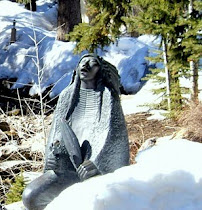


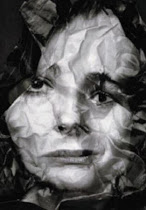
![HEALING FROM RITUAL AND SPIRITUAL CHILD ABUSE, FEMALE ABUSERS INCLUDED [CLICK PHOTO AND SEE BELOW]](http://1.bp.blogspot.com/_RaqCRK20I9k/S8YugIbo76I/AAAAAAAAAio/4kOqJPQSBC0/S210/fragmented+child.jpg)



















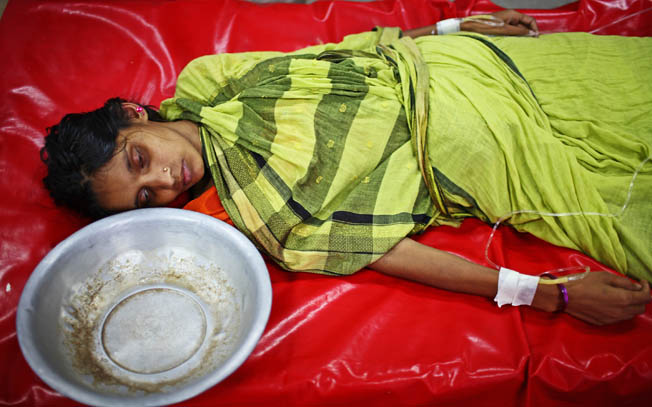
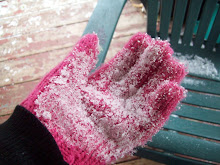



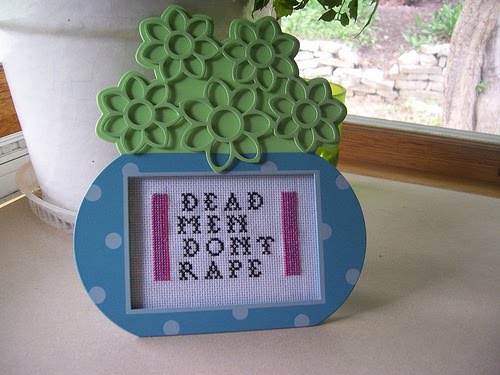


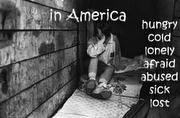


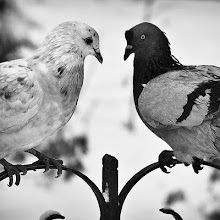


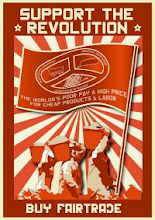










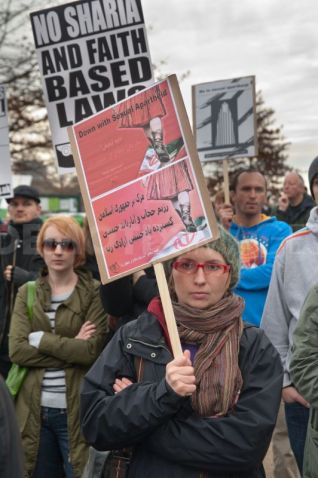


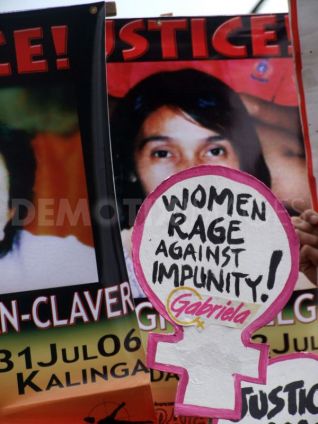






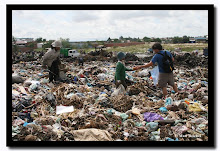



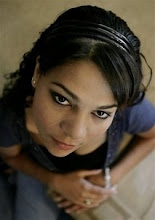











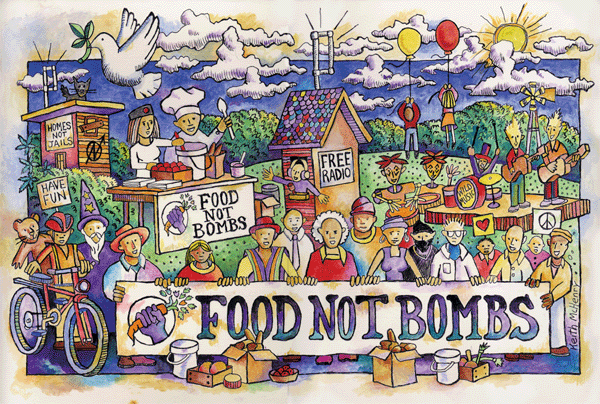

![Dedicated to the CREATORS, CREATOR, TO HER AND TO HIM [WHAT I BELIEVE IS GOD]](https://blogger.googleusercontent.com/img/b/R29vZ2xl/AVvXsEgRPSu4D2FIthc6FU-FZpdFNfvp07RYJ-vhCpuG1dKBmTOAjU79Sw2JEnqvwz-VLLCnQU9BPMLpW6obLTpxN_fim-yJXwzmhEydrOYR4K8KjU2MS8Go7Zk8RrffKKZG9voljwZ93ySfZP1E/s660/Mountains_spitzer_f.jpg)
0 comments:
Post a Comment